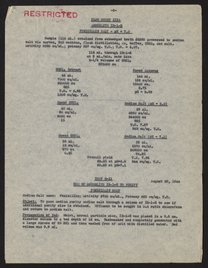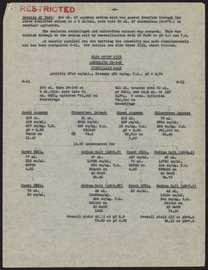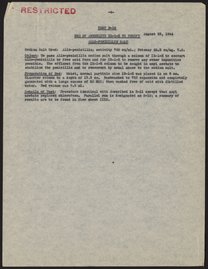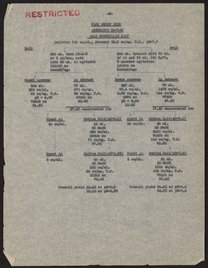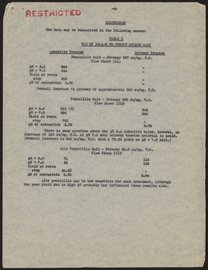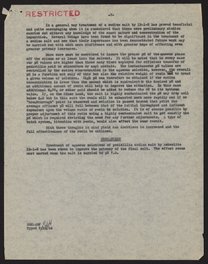Further Preliminary Studies on the Purification of Penicillin by Means of Amberlite Ion Exchange Resins: The Treatment of the Aqueous Sodium Salt
- 1944-Sep-19
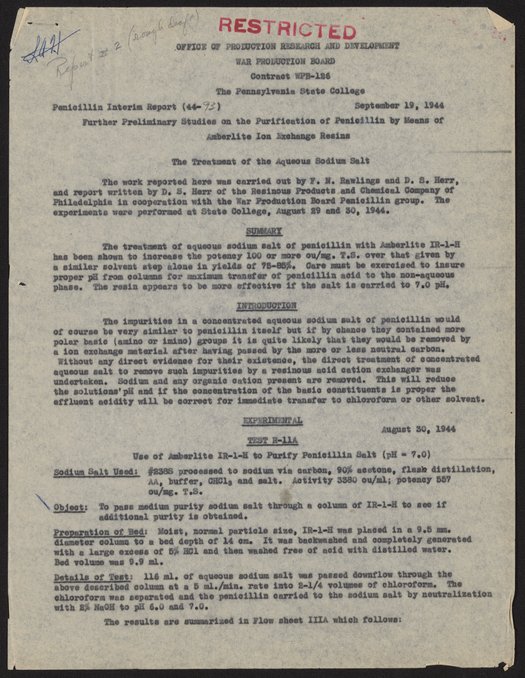
Seven page report on the purification of penicillin by means of Amberlite ion exchange resins. The report was conducted by the Resinous Products and Chemical Company of Philadelphia, later to become the Rohm and Haas Company, in collaboration with the War Production Board's Penicillin group, and was performed at Pennsylvania State University.
| Property | Value |
|---|---|
| Creator of work | |
| Place of creation | |
| Format | |
| Genre | |
| Extent |
|
| Language | |
| Subject | |
| Rights | In Copyright |
| Rights holder |
|
| Credit line |
|
| Department | |
|---|---|
| Collection | |
| Physical container |
|
View collection guide View in library catalog
Rohm and Haas Company. “Further Preliminary Studies on the Purification of Penicillin by Means of Amberlite Ion Exchange Resins: The Treatment of the Aqueous Sodium Salt,” September 19, 1944. Rohm & Haas Penicillin Papers, Folder 1. Science History Institute. Philadelphia. https://digital.sciencehistory.org/works/cqnxg8h.
This citation is automatically generated and may contain errors.

| Previous image | shift + or , |
| Next image | shift + or . |
| Pan image | |
| Zoom in | + or shift + |
| Zoom out | - or shift + |
| Zoom to fit | 0 |
| Close viewer | esc |
|
Also Mouse click to zoom in; shift-click to zoom out. Drag to pan. Pinch to zoom on touch. |
|
The Science History Institute recognizes there are materials in our collections that may be offensive or harmful, containing racist, sexist, Eurocentric, ableist, or homophobic language or depictions. The history of science is not exempt from beliefs or practices harmful to traditionally marginalized groups. The Institute is engaged in ongoing efforts to responsibly present and address the evidence of oppression and injustice inextricable from the history of science. If you would like to learn more about our ongoing efforts or if you encounter harmful, inaccurate, or insufficient descriptions, please contact us at digital@sciencehistory.org.
